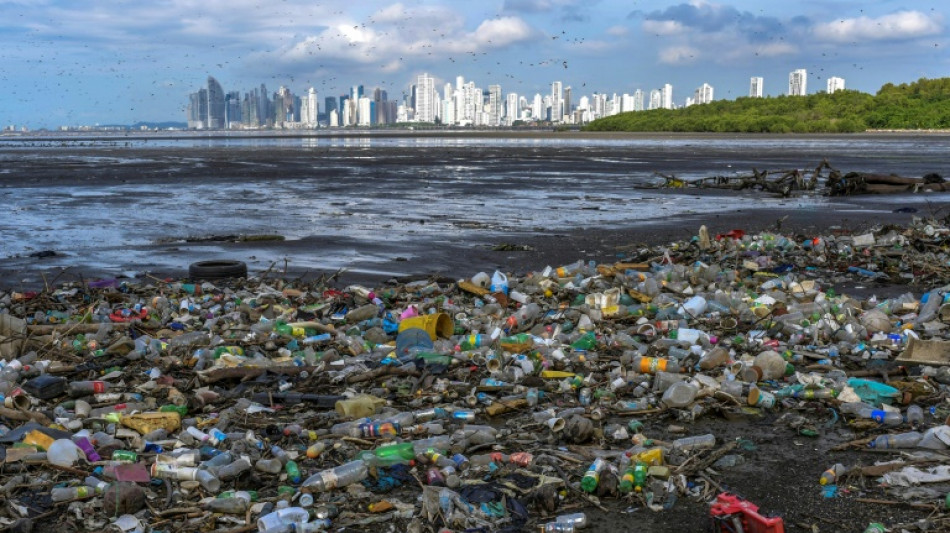
-
 Chelsea close in on UEFA Conference League final with win at Djurgarden
Chelsea close in on UEFA Conference League final with win at Djurgarden
-
Spurs take control in Europa semi against Bodo/Glimt

-
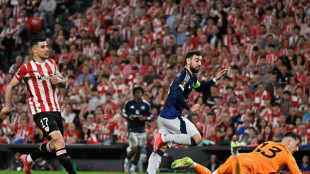 Man Utd seize control of Europa League semi against 10-man Bilbao
Man Utd seize control of Europa League semi against 10-man Bilbao
-
With minerals deal, Ukraine finds way to secure Trump support
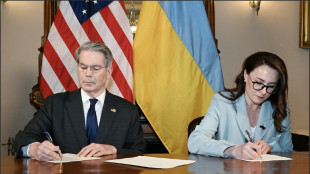
-
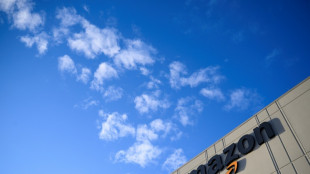 Amazon revenue climbs 9%, but outlook sends shares lower
Amazon revenue climbs 9%, but outlook sends shares lower
-
Trump axes NSA Waltz after chat group scandal
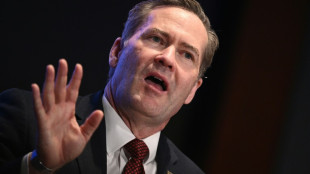
-
 Forest Champions League dreams hit after Brentford defeat
Forest Champions League dreams hit after Brentford defeat
-
'Resilient' Warriors aim to close out Rockets in bruising NBA playoff series

-
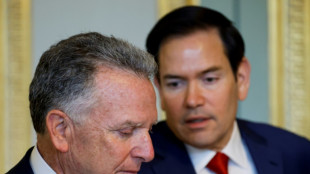 US expects Iran talks but Trump presses sanctions
US expects Iran talks but Trump presses sanctions
-
Baffert returns to Kentucky Derby, Journalism clear favorite

-
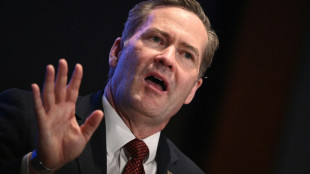 Top Trump security official replaced after chat group scandal
Top Trump security official replaced after chat group scandal
-
Masked protesters attack Socialists at France May Day rally

-
 Mumbai eliminate Rajasthan from IPL playoff race with bruising win
Mumbai eliminate Rajasthan from IPL playoff race with bruising win
-
McDonald's profits hit by weakness in US market
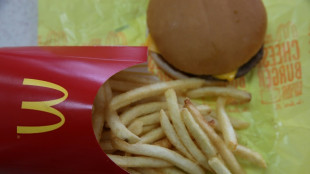
-
 Rio goes Gaga for US singer ahead of free concert
Rio goes Gaga for US singer ahead of free concert
-
New research reveals where N. American bird populations are crashing
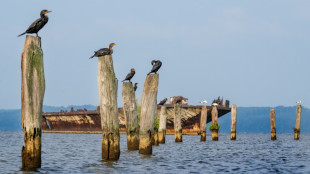
-
 Verstappen late to Miami GP as awaits birth of child
Verstappen late to Miami GP as awaits birth of child
-
Zelensky says minerals deal with US 'truly equal'
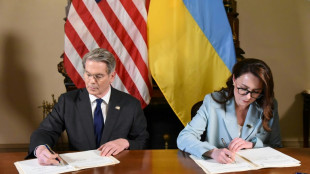
-
 Weinstein lawyer says accuser sought payday from complaint
Weinstein lawyer says accuser sought payday from complaint
-
Police arrest more than 400 in Istanbul May Day showdown

-
 Herbert named head coach of Canada men's basketball team
Herbert named head coach of Canada men's basketball team
-
'Boss Baby' Suryavanshi falls to second-ball duck in IPL

-
 Shibutani siblings return to ice dance after seven years
Shibutani siblings return to ice dance after seven years
-
300,000 rally across France for May 1, union says

-
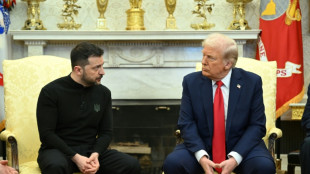 US-Ukraine minerals deal: what we know
US-Ukraine minerals deal: what we know
-
Top Trump official ousted after chat group scandal: reports
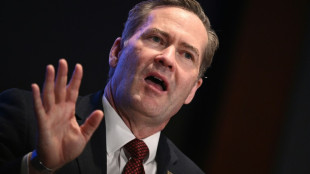
-
 Schueller hat-trick sends Bayern women to first double
Schueller hat-trick sends Bayern women to first double
-
Baudin in yellow on Tour de Romandie as Fortunato takes 2nd stage

-
 UK records hottest ever May Day
UK records hottest ever May Day
-
GM cuts 2025 outlook, projects up to $5 bn hit from tariffs

-
 Thousands of UK children write to WWII veterans ahead of VE Day
Thousands of UK children write to WWII veterans ahead of VE Day
-
Top Trump official exiting after chat group scandal: reports
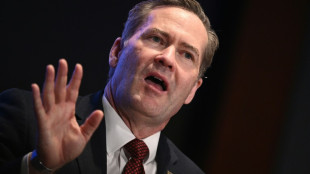
-
 Madrid Open holder Swiatek thrashed by Gauff in semis
Madrid Open holder Swiatek thrashed by Gauff in semis
-
Sheinbaum says agreed with Trump to 'improve' US-Mexico trade balance

-
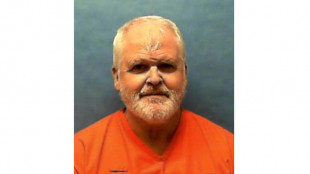 US veteran convicted of quadruple murder to be executed in Florida
US veteran convicted of quadruple murder to be executed in Florida
-
UK counter terrorism police probe Irish rappers Kneecap

-
 S. Korea crisis deepens with election frontrunner retrial, resignations
S. Korea crisis deepens with election frontrunner retrial, resignations
-
Trump administration releases report critical of youth gender care
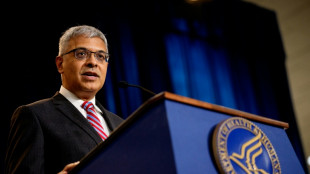
-
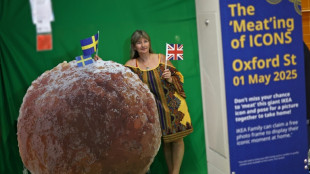 IKEA opens new London city centre store
IKEA opens new London city centre store
-
Police deploy in force for May Day in Istanbul, arrest hundreds

-
 Syria Druze leader condemns 'genocidal campaign' against community
Syria Druze leader condemns 'genocidal campaign' against community
-
Prince Harry to hear outcome of UK security appeal on Friday

-
 Microsoft raises Xbox prices globally, following Sony
Microsoft raises Xbox prices globally, following Sony
-
US stocks rise on Meta, Microsoft ahead of key labor data

-
 Toulouse injuries mount as Ramos doubtful for Champions Cup semi
Toulouse injuries mount as Ramos doubtful for Champions Cup semi
-
Guardiola glad of Rodri return but uncertain if he'll play in FA Cup final

-
 Ruud sails past Medvedev into Madrid Open semis
Ruud sails past Medvedev into Madrid Open semis
-
'Not a commodity': UN staff rally over deep cuts
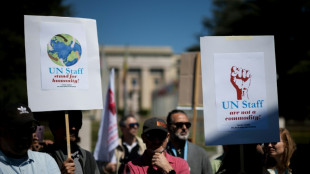
-
 Flintoff proud as Afghan refugee protege plays for Lancashire second team
Flintoff proud as Afghan refugee protege plays for Lancashire second team
-
Peruvian cardinal accused of abuse challenges late pope's sanction


World must work together to tackle plastic ocean threat: WWF
Plastic has infiltrated all parts of the ocean and is now found "in the smallest plankton up to the largest whale" wildlife group WWF said on Tuesday, calling for urgent efforts to create an international treaty on plastics.
Tiny fragments of plastic have reached even the most remote and seemingly-pristine regions of the planet: it peppers Arctic sea ice and has been found inside fish in the deepest recesses of the ocean, the Mariana Trench.
There is no international agreement in place to address the problem, although delegates meeting in Nairobi for a United Nations environment meeting this month are expected to launch talks on a worldwide plastics treaty.
WWF sought to bolster the case for action in its latest report, which synthesises more than 2,000 separate scientific studies on the impacts of plastic pollution on the oceans, biodiversity and marine ecosystems.
The report acknowledged that there is currently insufficient evidence to estimate the potential repercussions on humans.
But it found that the fossil-fuel derived substance "has reached every part of the ocean, from the sea surface to the deep ocean floor, from the poles to coastlines of the most remote islands and is detectable in the smallest plankton up to the largest whale".
- 'Saturation point' -
According to some estimates, between 19 and 23 million tons of plastic waste is washed into the world's waterways every year, the WWF report said.
This is largely from single-use plastics, which still constitute more than 60 percent of marine pollution, although more and more countries are acting to ban their use.
"In many places (we are) reaching some kind of saturation point for marine ecosystems, where we're approaching levels that pose a significant threat," said Eirik Lindebjerg, Global Plastics Policy Manager at WWF.
In some places there is a risk of "ecosystem collapse", he said.
Many people have seen images of seabirds choking on plastic straws or turtles wrapped in discarded fishing nets, but he said the danger is across the entire marine food web.
It "will affect not only the whale and the seal and the turtle, but huge fish stocks and the animals that depend on those", he added.
In one 2021 study, 386 fish species were found to have ingested plastic, out of 555 tested.
Separate research, looking at the major commercially fished species, found up to 30 percent of cod in a sample caught in the North Sea had microplastics in their stomach.
Once in the water, the plastic begins to degrade, becoming smaller and smaller until it is a "nanoplastic", invisible to the naked eye.
So even if all plastic pollution stopped completely, the volume of microplastics in the oceans could still double by 2050.
But plastic production continues to rise, potentially doubling by 2040, according to projections cited by WWF, with ocean plastic pollution expected to triple during the same period.
- Enduring risk -
Lindebjerg compares the situation to the climate crisis -- and the concept of a "carbon budget", that caps the maximum amount of CO2 that can be released into the atmosphere before a global warming cap is exceeded.
"There is actually a limit to how much plastic pollution our marine ecosystems can absorb," he said.
Those limits have already been reached for microplastics in several parts of the world, according to WWF, particularly in the Mediterranean, the Yellow and East China Seas (between China, Taiwan and the Korean Peninsula) and in the Arctic sea ice.
"We need to treat it as a fixed system that doesn't absorb plastic, and that's why we need to go towards zero emissions, zero pollution as fast as possible," said Lindebjerg.
WWF is calling for talks aimed at drawing up an international agreement on plastics at the UN environment meeting, from February 28 to March 2 in Nairobi.
It wants any treaty to lead to global standards of production and real "recyclability".
Trying to clean up the oceans is "extremely difficult and extremely expensive", Lindebjerg said, adding that it was better on all metrics not to pollute in the first place.
P.M.Smith--AMWN